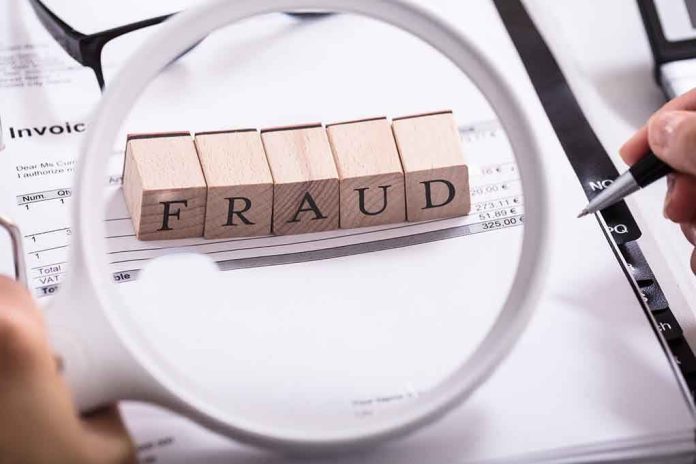
Fifteen Democrat officials and operatives, including a sitting judge and two former mayors, have been indicted in what may be Texas’s most brazen vote-harvesting scandal—leaving citizens wondering how many more elections have been rigged under their noses and ignored by the political class.
At a Glance
- Fifteen Democrats, including current and former Frio County officials, indicted for allegedly orchestrating a large-scale vote harvesting scheme in South Texas.
- The alleged operation targeted elderly voters and involved paying operatives to collect mail-in ballots, conceal evidence, and evade law enforcement.
- The scandal, exposed by a losing Democrat candidate, led to a multi-year investigation and a wave of indictments from the Texas Attorney General’s Office.
- Public trust in local elections and the Democratic Party in Frio County has been severely shaken, fueling calls for tougher election integrity measures statewide.
South Texas Election Integrity Shattered: The Scope and Scale of the Indictments
Fifteen Democrats now face criminal charges in Frio County after a multi-year investigation uncovered what prosecutors describe as one of the most coordinated vote fraud operations ever prosecuted in the state. The cast of indicted characters reads like a who’s-who of local Democratic power brokers: a sitting county judge, former mayors, city council members, a Texas House candidate, and school trustees. Their alleged offense? Systematic vote harvesting—illegally collecting and submitting ballots, often from the elderly, and then covering their tracks with the sort of stealth you’d expect from career criminals, not public servants.
The charges stem from the 2022 Democratic primary runoff, when losing candidate Mary Moore blew the whistle on her opponent, Rochelle Lozano Camacho. Moore alleged that Camacho and her allies paid operatives to round up mail-in ballots, filled out applications for voters, and even chauffeured people to the polls—all for a fee ranging from $1,500 to $2,500 per operative. This wasn’t a one-off event; the Attorney General’s Office and local DA spent years gathering evidence, eventually executing search warrants across Frio, Atascosa, and Bexar counties. The investigation culminated this July with grand jury indictments of 15 individuals, some of whom have held public trust for decades.
How the Alleged Scheme Worked and Who’s Involved
The heart of the scheme was simple: manipulate the most vulnerable voters—primarily the elderly in Pearsall, Texas—by collecting and, allegedly, altering mail-in ballots to swing elections. The accused network paid operatives for their “get out the vote” efforts, but according to investigators, what they were really getting out was democracy itself. Ballots were concealed, applications were filled out en masse, and multiple vehicles were used to avoid police attention. The level of coordination points to a systemic abuse of office, not just a few bad actors. Among those indicted are Rochelle Lozano Camacho (the newly minted judge), former mayors Petra Davina Trevino and Mary Ann Obregon, Texas House candidate Cecilia Castellano, and a slew of city council members and school board officials.
Attorney General Ken Paxton didn’t mince words: “The people of Texas deserve fair and honest elections, not backroom deals and political insiders rigging the system. Elected officials who think they can cheat to stay in power will be held accountable. No one is above the law.” That’s a far cry from the Democratic Party’s usual “nothing to see here” routine. Maybe the only thing more shocking than the scale of the indictments is how long it took anyone in power to care.
Political Fallout and Public Trust: Consequences for Frio County and Beyond
For the people of Frio County, the fallout is immediate and personal. Their elected leaders—entrusted to safeguard the voting process—stand accused of subverting it for personal gain and political power. Public trust, already battered by years of partisan gamesmanship, has cratered. Special elections may be needed to fill the vacancies left by those arrested, and the local Democratic Party faces a reckoning that could echo statewide. The scandal has also reignited calls for tougher voter ID laws and tighter controls on mail-in ballots, a move that—let’s be honest—drives the left absolutely bonkers. But when the fox is guarding the henhouse, is it any wonder folks want a bigger fence?
Economically, the county will bear the cost of legal proceedings, special elections, and administrative reforms. Socially, the scandal deepens the divide among neighbors and fuels the fire for anyone suspicious of “too good to be true” election results. Politically, Republicans have seized on the story as proof that robust election security isn’t just a talking point—it’s a necessity. Meanwhile, Democrats in Texas must answer for the apparent rot in their own backyard.
Election Integrity in the Crosshairs: Reforms and the Road Ahead
This case will likely become a rallying cry for election integrity advocates nationwide. Prosecutors, emboldened by the success of bringing down such a well-connected ring, could pursue similar cases elsewhere. The Texas Legislature is expected to revisit mail-in ballot laws, and other states may follow suit. Some legal experts caution against painting all election officials with the same brush, but it’s hard to ignore the systemic vulnerabilities exposed by this scandal. Every time a public official is caught gaming the system, Americans lose more faith in the democratic process. And that’s a crisis far bigger than any one county in Texas.
For now, the accused are entitled to their day in court. But for millions of conservative Americans, the message is clear: election integrity is not negotiable, and those who betray the public trust—no matter their office—must answer to the law. If this isn’t a wakeup call for lawmakers, voters, and watchdogs alike, nothing ever will be.





